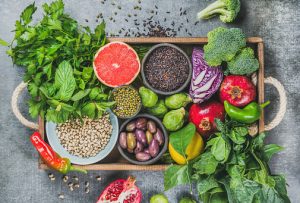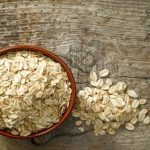
Having poor circulation can lead to many harmful effects on your health. While not a diagnosis in itself, it can be the result of an underlying condition such as cardiovascular disease or diabetes.
If you’re worried at all about your circulation, try these foods that have been proven to increase blood flow.
19 foods that increase blood flow
1. Celery
This vegetable is packed with vitamins and nutrients. Of these is vitamin K, important for healthy blood flow and healthy blood clotting. Celery is also a great diuretic, helping flush out harmful waste products that your body produces. Celery is a common ingredient in various detox smoothies, a great addition to salads, and can simply be eaten raw has a midday snack.
2. Raw seeds
Not just for birds, seeds like chia, flax, and pumpkin are packed with omega-3 fatty acids and antioxidants. They are also a great source of fiber. Having these attributes, seeds are great for reducing inflammation and cholesterol.


Some of the most antioxidant-packed whole grains you can get your hands on, oats are great for reducing inflammation in the body. Oats are high in fiber, which not only help regulate bowel movement, but reduce the amount of cholesterol being absorbed by the body. If gluten is a concern for you, choose rolled or steel-cut over the instant variety of oats.
4. Citrus fruits
These are some of the best low sugar, anti-inflammatory foods you can add to your diet. This includes fruits such as lemons, oranges, and grapefruit. Despite being acidic in nature, citrus fruit have an alkalinizing effect on the body, making them excellent internal body cleansers thanks to vitamin C. Citrus fruits can be enjoyed in a number of ways, from making them a part of fruit smoothies to adding a couple slices to a delicious salad.
5. Raw almonds and walnuts
These are two of the most beneficial nuts you can find, as each has special antioxidant compounds that not only improve blood flow, but also fight inflammation. Almonds contain vitamin E while walnuts contain omega-3’s. It is best to enjoy these nuts raw as often as possible. When cooked, they become more acidic.
6. Glorious greens
As a general rule, green vegetables will always be a benefit to your overall health, not to mention that they provide you with vitamins and minerals to keep your circulatory system in great shape. Greens are the most alkalizing food, as they contain the densest sources of chlorophyll. This cleanses the blood and the liver, which plays a role in blood filtering. You can try spinach, kale, arugula, romaine, and regular old lettuce.
7. Certain superfoods
While this is simply a term used to identify foods that we benefit from, it serves as a great way of identifying healthy food. Superfoods are known for having high-antioxidant content, promoting your blood flow, the circulatory system, and your overall health. One of the most nutrient-rich foods on the planet is called spirulina, and it contains more protein than beef per serving (4 grams per teaspoon). Acai contains more antioxidants than blueberries and also packs omega-3’s. Another superfood is cacao, which helps boost blood circulation, lowers blood pressure, and even improves neurotransmitter function in the brain.
Great for helping the body get rid of wastes and toxins, cucumbers also provide the body with water, potassium, vitamin C, and fiber. They are also known to have great anti-inflammatory properties
9. Asparagus
Known for making your urine smell, this vegetable promotes urination. It acts as a diuretic due to its high potassium content. It also contains B vitamins, vitamin C, and fiber. Asparagus also contains protein, having four grams per every six stalks of the vegetable.
10. Red bell peppers
Known for being rich in vitamin C, red bell peppers contain more of the vitamin that required for one day. They are also a great source of fiber, antioxidants, and water, helping to improve blood flow. They also have a unique shape that lends it to be a great food to stuff other healthy foods in. You can fill red bell pepper shells with grains such as quinoa or even other vegetables, making for a healthy addition to any meal.
It’s rich in nitrates, which help your blood deliver oxygen more efficiently to your muscles. This is excellent for improving blood circulation, and many athletes choose to drink it. Studies have shown that consuming one or two cups of beet juice per day helped reduce blood pressure.
12. Salmon
Rich in omega-3 fatty acids and is known for having natural blood thinning properties and anticoagulant effects. Previous studies have found that omega-3 fatty acid deficiencies result in poor circulation symptoms. Wild salmon appears to contain the richest source of omega-3’s and is, therefore, recommended compared to the farm raised kind. Other fish such as lake trout, herring, sardines, albacore tuna, and mackerel are also great sources of omega-3 fatty acids.
13. Cayenne pepper
A popular addition to any meal for a dash of spice, this pepper also holds great benefits for blood circulation. Cayenne pepper can help strengthen arteries and blood vessels, helping blood to circulate more efficiently around the body.
14. Radishes
While generally considered a bitter vegetable, radishes are rich in minerals, including potassium. This helps to normalize blood pressure and promote blood circulation. Each half cup of radishes contains 135 mg of blood pressure-lowering potassium.
15. Maca
A cousin of the radish, this heart-shaped root vegetable is unique for its fatty acid composition that improves blood circulation, reduces inflammation, and even accelerates wound healing. It can be found in powder form, making it easy to add a teaspoon to smoothies or other meals. It has a pleasant earthy flavor with a hint of butterscotch. While it is great for your health, maca is to be avoided entirely in pregnant women.
The reason most people get up in the morning, coffee not only helps get your day started, but also improves blood circulation. Drinking moderate amounts of the stuff (one to two cups a day) can increase blood flow by up to 30 percent over a 75-minute period, according to a previous study.
17. Wakame seaweed
Commonly found in sushi restaurants, this plant has been found to reduce blood pressure over a four-week period. Wakame seaweed is quickly becoming a favorite snack food, but it is important to choose high-quality varieties that aren’t contaminated with heavy metals or other impurities.
18. Brussels sprouts
Rich in vitamin C, an antioxidant that acts on the cell linings of your arteries and helps with their expansion. This helps promote blood flow. While not the most popular vegetable, your health can benefit from including this vegetable into your meals.
19. Garlic
Known to have an abundant amount of health-promoting properties, garlic is also great at improving blood circulation. Our blood vessels can become clogged by plaque formation over time, leading to poor blood circulation. Eating two to three cloves of garlic daily can help prevent this, promoting efficient blood flow.
Related: Poor circulation treatment: How to improve blood circulation